ALL ABOARD: Volunteers complete 12-year restoration of 91-year-old LMS railway carriage
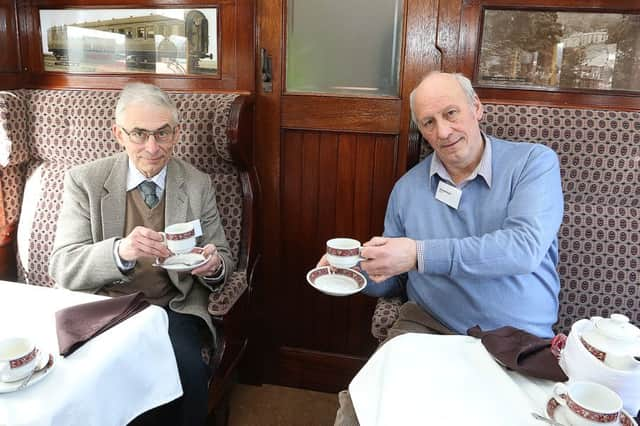

The carriage, owned by the National Railway Museum, has been on long-term loan to the association since 2003 and has been restored to operational use by volunteers at the site.
The 1925 Derby-built carriage, known by its full title as a ‘London, Midland and Scottish Railways Period 1 Vestibule Third, No. 7828’, had been in storage for a number of years, having been withdrawn from service by British Railways in 1962.
Advertisement
Hide AdAdvertisement
Hide AdShortly after, it gained a further lease of life as part of the London Midland Region mobile control, to provide an administration base for staff in case of a national emergency, such as a nuclear war.
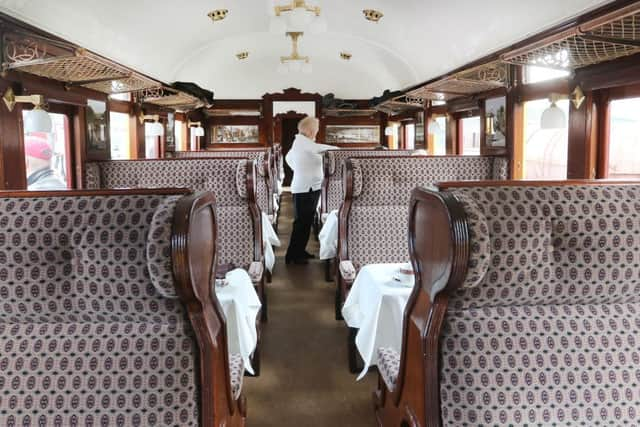

With the end of the Cold War in sight, the carriage passed to the National Railway Museum in 1980.
In conjunction with two other, similar vehicles, restoration was then started by apprentices at Derby Carriage and Wagon works with the intention of assembling a joint LMS and LNER set of carriages.
Some restoration work was completed, including a complete electrical rewire and the interior being stripped and re-varnished.
Advertisement
Hide AdAdvertisement
Hide AdHowever, with the introduction of the ban on wooden-framed coaches being registered for main line running, the project was halted and no further work was carried out.
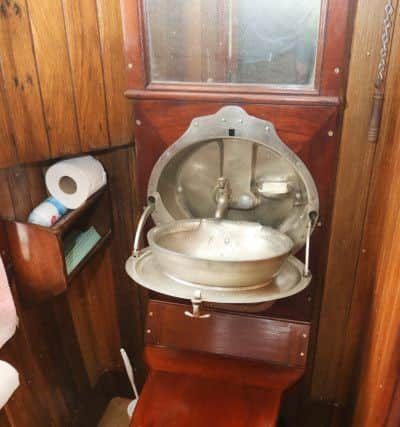

A loan agreement was signed with The National Railway Museum in 2003 and restoration work on the carriage started shortly after.
The extensive restoration meant that the volunteers had to develop skills in materials conservation and the replacement of components, as well as sourcing parts to complete the project.
The work included widespread body frame repairs, reconstruction of the outside doors, seat upholstering and re-glazing of all the windows, together with the manufacture of replica tables.
Advertisement
Hide AdAdvertisement
Hide AdThe coach has also had a complete re-paint with newly-made decals of the LMS line.
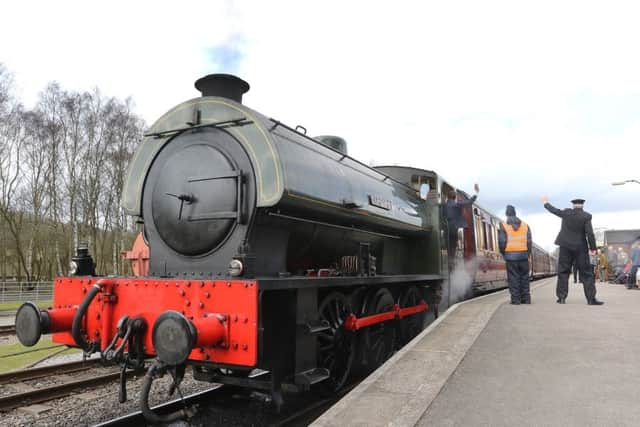

The carriage seats 56 passengers in two saloons, with a toilet and luggage shelves at each end.
These are termed “twin window” coaches, as each seating bay has two windows; one is fixed and one a drop light, similar to the window that can be dropped in a door.
During March, there was a period of “running in” to check the carriage worked and was safe for passengers.
Advertisement
Hide AdAdvertisement
Hide AdThis included the first run of an LMS carriage into Matlock Station for almost 50 years.
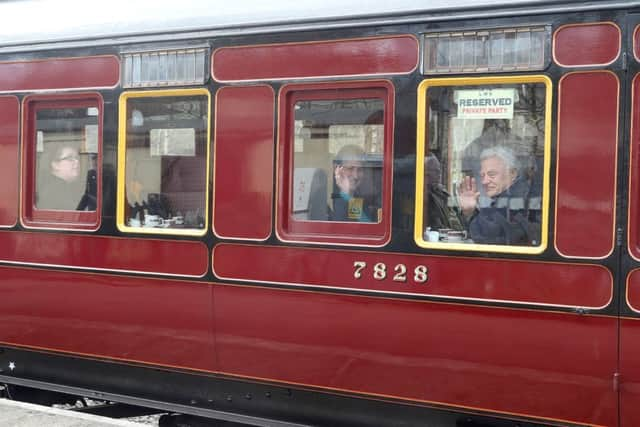

The carriage will now enter service and be enjoyed by the travelling public on Peak Rail, a preserved railway, which operates between Matlock and Rowsley South.
The LMSCA is already planning its next project, the restoration of a 1935 LMS Railway carriage, which is expected to take five years at a cost of an estimated £40,000.
The association is asking for new members and volunteers to help with this new project, as well as donations for the cost of the work.
Advertisement
Hide AdAdvertisement
Hide AdThe LMS Carriage Association is a UK registered charity, based at Peak Rail, whose charitable aims are to preserve and operate a collection of historical London, Midland and Scottish Railway passenger and non-passenger coaching stock for use by and the education of the public.
The LMSCA provides a travelling experience to foster an appreciation of ordinary travel by LMS train, as well as enabling the public to view restorations in progress
The LMSCA website is www.lmsca.org.uk.
The National Railway Museum in York has the largest collection of locomotives, rolling stock and memorabilia in the world and attracts over 700,000 visitors per year.